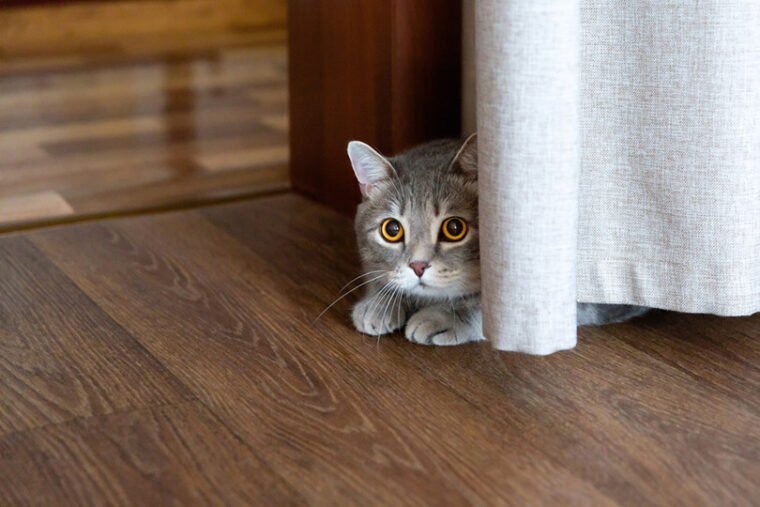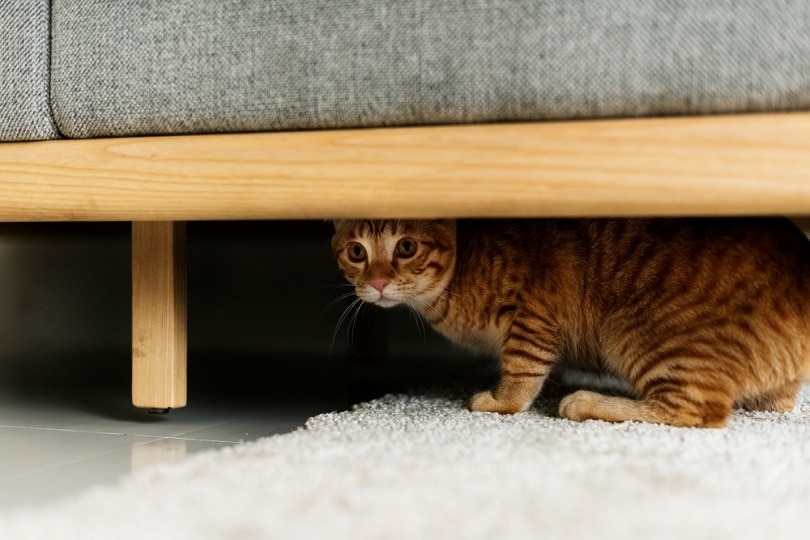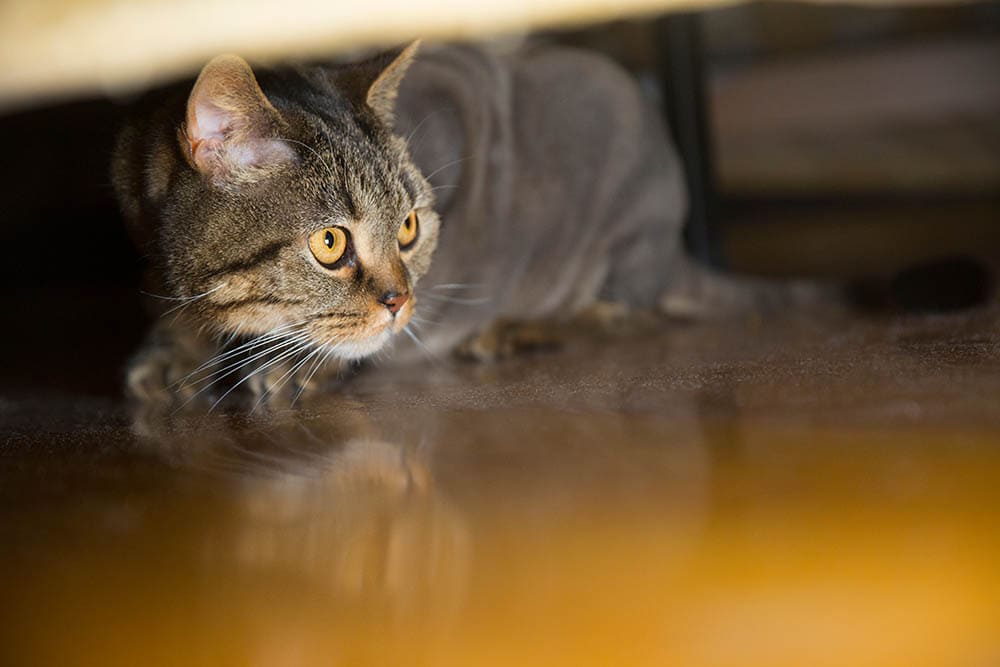
Cats can get scared for various reasons, and some cats are more skittish than others. However, practically all cats will hide when they feel threatened or anxious. It’s how cats evolved to protect themselves. They aren’t very large predators, so hiding was a key way they survived in the wild.
The length of time your cat will hide if they get scared can vary depending on many factors, such as the severity of the scare, the cat’s personality, and the environment they are in.
How Long Do Cats Usually Hide For?
Sometimes, a scared cat may only hide for a few minutes or hours before they feel safe enough to come out of hiding. However, in other cases, a cat may remain hidden for days or even weeks if they feel their safety is threatened.
Giving your cat the space and time they need to feel safe and comfortable is important. Avoid forcing your cat out of hiding or trying to lure them out with treats, as this can cause them to become even more frightened.
Instead, try to create a calm and quiet environment for your cat, and provide them with food, water, and a litter box nearby, so they don’t need to leave their hiding spot. Gradually introduce toys and other forms of stimulation to encourage your cat to come out of hiding on its terms.
Excessive hiding can indicate a health problem, as well. Cats may hide when they aren’t feeling good to avoid potentially being preyed upon by predators. While this isn’t a problem in our homes, cats still have the instinct to hide when sick. If your cat seems to be hiding excessively for no apparent reason, a trip to the vet is in order.

How Do I Get My Scared Cat Out of Hiding?
You don’t necessarily want to get your scared cat out of hiding. In many cases, the cat will come out when they are ready. Poking or prodding your cat to come out may only increase the fear. Instead, it’s often best to leave the cat alone and allow them to come out when ready.
That said, there are some things you can do to encourage your feline to emerge.
As we said, if your cat is hiding excessively, a trip to the vet may be in order.

How To Keep Your Cat from Getting Scared
Preventing your cat from becoming scared is often easier than getting your cat out of hiding when they’re already scared. An ounce of prevention is worth a pound of treatment in this case. While you can’t prevent every scare, there are some things you can do to help your cat become less anxious.
Conclusion
Scared cats naturally hide—it’s just their instinct. While hiding may seem negative to us, it’s very calming for our felines. Our cats typically know how to lower their anxiety and fear when stressed. Therefore, if your cat wants to hide, it is best to let them hide.
They may hide for only a few minutes depending on why the cat was scared. The cat may be skittish for several days in severe cases, such as when the cat is introduced into a new home. While you should allow your cat to hide for as long as they want, there are several things you can do to make them feel more comfortable.
You can also prevent your cat from becoming scared in the first place by providing a safe environment, socializing your cat, and providing positive reinforcement.
Featured Image Credit: Mantikorra, Shutterstock







